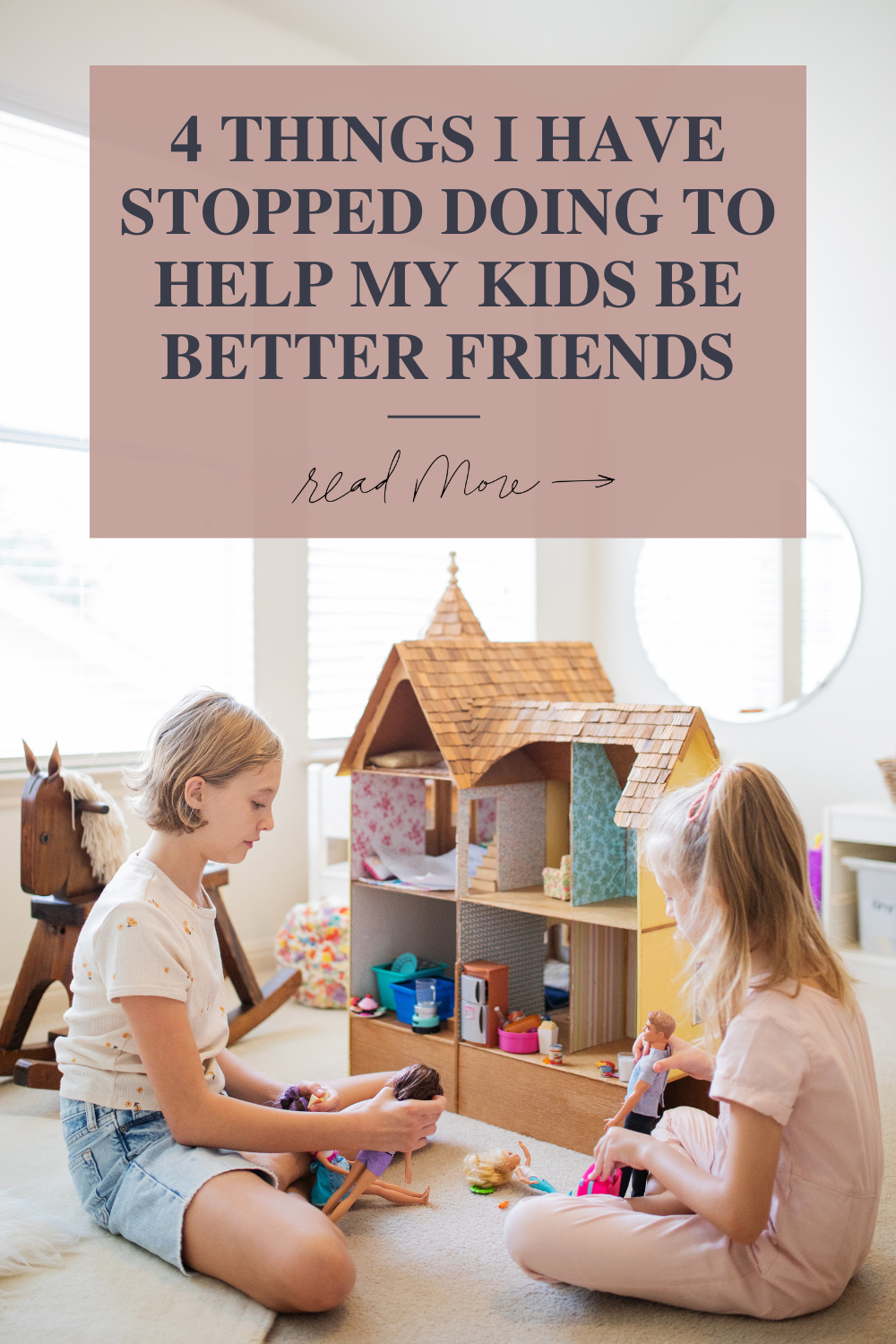Sometimes the things we do as parents, with good intentions, can actually make sibling relationships harder. Over the years, I’ve learned that my behaviors can really have negative effects. Here are four things I’ve stopped doing to help my kids be better friends:

1. Making Them Share
Sharing is an important skill, but forcing kids to share can create resentment (especially if it’s your most favorite toy!). When parents make kids share their toys, it leads to negative feelings. Children start to see their siblings as obstacles to their happiness, which makes them less willing to play together.
2. Yelling at Them for Fighting
Sibling fights are inevitable, but yelling at kids for fighting only makes things worse. It escalates the conflict, adds more stress, and makes the situation feel like a much bigger deal. Instead of resolving the issue, it prolongs the tension. I’ve found that staying calm and helping them talk through their disagreements works much better. By modeling calm behavior, I show them how to handle conflicts in a healthy way.
3. Having Them Race Each Other
This is a hard one. I used to think that friendly competition would be fun for my kids, but it often led to unnecessary rivalry and comparison. Racing and competing make children feel like they have to outdo each other to get their parents’ approval. I don’t need that in my home! Now, I focus on activities that encourage teamwork and collaboration. This helps them see each other as partners rather than rivals, which encourages a more supportive and friendly relationship.
4. Labeling Them
Using labels, especially negative ones, can be very damaging. Phrases like “you’re such a diva,” “you’re so picky,” “you’re such a bully,” or “why are you so mean all the time?” can stick with kids and shape how they see themselves. Children are remarkably obedient in living out the labels we give them. Instead of labeling, I try to describe their behavior without judgment and encourage positive qualities. This helps them build a healthier self-image and reduces the chance of them living up those negative expectations.
Building Stronger Friendships
By stopping these four actions, I’ve seen a noticeable improvement in how my kids interact with each other. They are more likely to collaborate, resolve conflicts peacefully, and create positive memories together. Sibling relationships are complex, but with a little patience and a lot of understanding, we can help our kids build the foundation for lifelong friendships.
If you want to learn more about how to handle sibling rivalry and help your kids become better friends, come to my LIVE webinar: “Sibling Rivalry: What Works, and What Doesn’t.” It’s packed with practical tips and strategies to reduce the fighting in your home, and how to teach your children positive skills for the future.
Sibling Rivalry: What Helps and What Doesn’t
If you are interested in more ideas to reduce sibling rivalry in your home, check out these resources:
